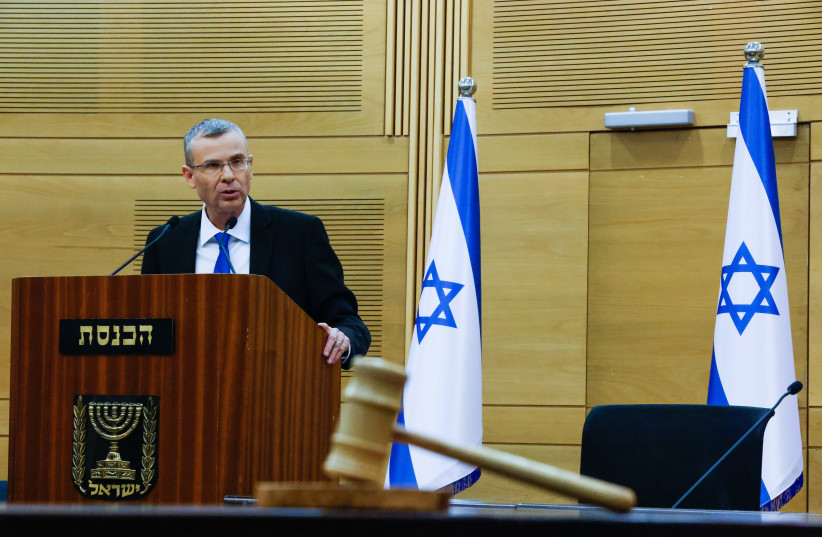At first glance, it can be difficult to determine the political leanings of some of the judicial reform protests.
Both pro-reform and anti-reform protesters wave Israeli flags, and both chant in favor of “democracy.”
It is only upon closer scrutiny, when looking at the signs and other flags raised at the demonstrations, that one can glean with which political camp they align.
Israel Independence Day: Judicial reform and the thriving of Zionism
Israel celebrated its 75th birthday on Wednesday. While there are many issues with the dispute over judicial reform, there are some positive aspects about Israeli society that can be understood from the protests. Chief among them is despite all the complaints, despite all the concerns, despite the sometimes brutish politics, Israelis still believe in the idea of Israel – in Zionism.
While both the coalition and opposition disagree with one another, they argue under the banner of the Israeli flag. They both agree on the symbol as a means of identification.

In some countries, it is passé to wave one’s state flag, with their shared identity less important than other identifying features. In the United States, the raising of the stars and stripes is seen as a political statement, with some on the Left rejecting it as something that represents them.
Meanwhile, in Israel, other symbols of the state have become ubiquitous with the reform protests, such as the Israeli Declaration of Independence. Opponents of Justice Minister Yariv Levin’s reform proposal have been making banners and signs from excerpts of the document. On some occasions, the entire declaration has been printed out and laid across the road.
Israel’s Declaration of Independence has been championed in the judicial reform as a basis for the demands of the opposition in the talks, appearing in constitutional proposals from NGOs and politicians, such as opposition leader Yair Lapid.
use of the document shows a deep abiding respect for the founding of the state, even after 75 years. It could be argued that the opposition has co-opted the declaration for its legitimacy to push for the rights it wishes to implement.
Even under cynical scrutiny, however, seeking to use the document’s legitimacy would require that there be a preexisting respect for the declaration and all that it represents among the Israeli public in the first place. There is no lack of regional and international charters for rights that exist, but the opposition chose to rally around something that was uniquely Israeli.
The chants on both sides for democracy show that while they disagree on the expression of the principle, both agree that Israel should be a democracy. The coalition believes that the changes it implements will bring more democracy by making the judiciary answerable to the electorate. The opposition believes that it is creating a better democracy by protecting checks and balances. Democracy is a founding principle of Israel, and both sides are operating under its umbrella even in disagreement.
Israeli leaders from across the political spectrum have said Remembrance Day and Independence Day are times for unity. While there are concerns about politicizing the days, both sides still deeply respect them, even if it is in their own ways.
In many parts of the world, polarization is along extremes in society, and people are so ideologically possessed that they do not even share the same identity, even though they live in the same polity. There are few means for them to find common ground that will allow them to compromise on policies, as Israeli factions are attempting to do with the judicial reform agreement.
Israel is currently suffering a political crisis along many different axes, but it is not its first crisis, and it will not be its last. The state has suffered turmoil before, war and peace, controversy and malaise, but 75 years later it persists.
As long as Israelis agree to live under the same flag and identify as part of the same nation and state, they will be able to live with the current disagreement as well and enjoy years of crises to come.
